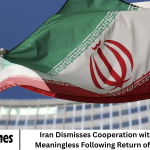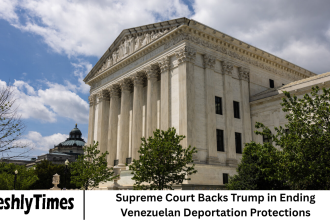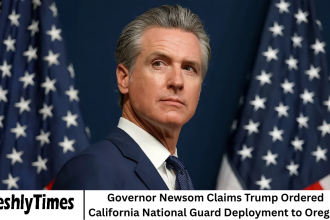Global Leaders Unite in Riyadh
The 2025 Middle East Security Summit has convened world leaders, diplomats, and regional representatives to address escalating tensions in the region. Hosted in Riyadh, Saudi Arabia, the summit arrives at a critical time as geopolitical shifts, resource disputes, and social unrest continue to challenge stability. Discussions have centered on regional cooperation, counterterrorism, and economic collaboration, emphasizing the interconnectedness of politics, energy, and security across the Middle East.
- Global Leaders Unite in Riyadh
- Regional Powers at the Negotiating Table
- International Stakeholders and Global Dynamics
- Counterterrorism and Security Cooperation
- Energy Security and Economic Stability
- Pathways to Diplomatic Normalization
- Economic Cooperation and Regional Integration
- Humanitarian and Social Challenges
- Cybersecurity and Technological Threats
- Historical Context and Geopolitical Complexities
- The Role of Media and Public Perception
- Early Progress and Future Prospects
- FAQs
- Conclusion
Regional Powers at the Negotiating Table
Saudi Arabia, Iran, the United Arab Emirates, and Turkey have emerged as central figures in this year’s summit. Leaders from these nations have stressed the importance of dialogue and cooperation to prevent escalation in areas such as Yemen, Syria, and the Persian Gulf. Negotiations are exploring new frameworks for military alliances, intelligence sharing, and regional diplomacy aimed at reducing tensions and fostering long-term stability.
International Stakeholders and Global Dynamics
Global powers including the United States, European Union, Russia, and China are also playing a significant role in the summit. Each brings unique strategic interests and economic influence, creating a complex negotiation environment. Balancing regional sovereignty with global cooperation remains one of the summit’s primary challenges as nations seek mutual benefits without external domination.
Counterterrorism and Security Cooperation
Counterterrorism remains a top priority on the summit’s agenda. The persistence of extremist threats has prompted regional leaders to focus on intelligence collaboration, border control, and cyber defense. Efforts are also being directed toward addressing root causes such as unemployment, ideological radicalization, and social inequality—key drivers that fuel instability and terrorism.
Energy Security and Economic Stability
Energy security continues to shape discussions, with the Middle East serving as a vital global energy supplier. Political unrest or conflict in the region can have worldwide economic repercussions, highlighting the need for steady governance and coordinated energy policies. In addition, renewable energy projects and sustainable initiatives are gaining attention as leaders explore diversification strategies for a post-oil future.
Pathways to Diplomatic Normalization
The summit has provided a valuable platform for diplomatic normalization and peace-building among rival states. While recent agreements between former adversaries have shown progress, lingering mistrust and unresolved disputes persist. Mediators and observers emphasize that long-term peace requires continuous dialogue, confidence-building, and mutual respect between nations.
Economic Cooperation and Regional Integration
Economic collaboration has emerged as a complementary pillar of regional security. Trade agreements, infrastructure investments, and shared development projects are being promoted as mechanisms for stability. By fostering interdependence and economic growth, leaders hope to reduce conflict triggers and encourage sustained cooperation among Middle Eastern nations.
Humanitarian and Social Challenges
Humanitarian concerns feature prominently in the summit’s discussions. Addressing refugee crises, displaced populations, and unequal access to resources remains crucial for peacebuilding. International aid coordination and development initiatives are being considered to strengthen social resilience and improve living conditions in conflict-affected areas.
Cybersecurity and Technological Threats
As the region undergoes digital transformation, cybersecurity has become a critical component of national defense. Summit participants have discussed measures to combat state-sponsored cyberattacks, terrorism-related hacking, and digital espionage. Joint frameworks for cyber defense, data protection, and intelligence exchange are being developed to counter emerging threats in the digital era.
Historical Context and Geopolitical Complexities
Experts note that today’s tensions in the Middle East are deeply rooted in history. Sectarian divisions, territorial rivalries, and foreign interventions continue to influence political realities. Moreover, competition over natural resources, water scarcity, and demographic pressures add complexity to regional planning. The summit aims to approach these challenges through holistic, multi-dimensional strategies that balance politics, economics, and security.
The Role of Media and Public Perception
Public communication has played a vital role throughout the summit. Media outlets and social platforms have shaped global perceptions of progress and transparency. Citizens across the region are expressing hope for accountability and sustainable peace, while international audiences monitor how leadership decisions may influence global politics and energy markets.
Early Progress and Future Prospects
Despite ongoing challenges, early reports indicate cautious optimism. Agreements on joint patrols, intelligence collaboration, and shared economic projects signal concrete progress. While comprehensive peace remains distant, small steps toward cooperation are helping to build trust and stability in a region long defined by volatility.
FAQs
What is the focus of the Middle East Security Summit 2025?
The summit addresses regional security, counterterrorism, energy stability, and economic cooperation across Middle Eastern nations.
Which countries are key participants?
Saudi Arabia, Iran, the UAE, and Turkey lead the discussions, alongside major global powers such as the U.S., EU, Russia, and China.
How does the summit address terrorism?
Through intelligence sharing, joint counterterrorism strategies, cyber defense, and addressing socio-economic root causes of extremism.
Why is energy security important?
The Middle East supplies a major share of global oil and gas; political instability can disrupt markets and affect global energy prices.
Are humanitarian issues part of the discussions?
Yes. The summit prioritizes refugee support, access to services, and humanitarian relief as part of its broader stability strategy.
Conclusion
The 2025 Middle East Security Summit demonstrates a renewed commitment to diplomacy, peace, and shared prosperity. By tackling terrorism, energy concerns, humanitarian crises, and technological threats, regional and global leaders are working toward a collective vision of security. Although challenges remain, the summit marks a significant step toward dialogue-driven progress that could reshape the political and economic landscape of the Middle East and beyond.














